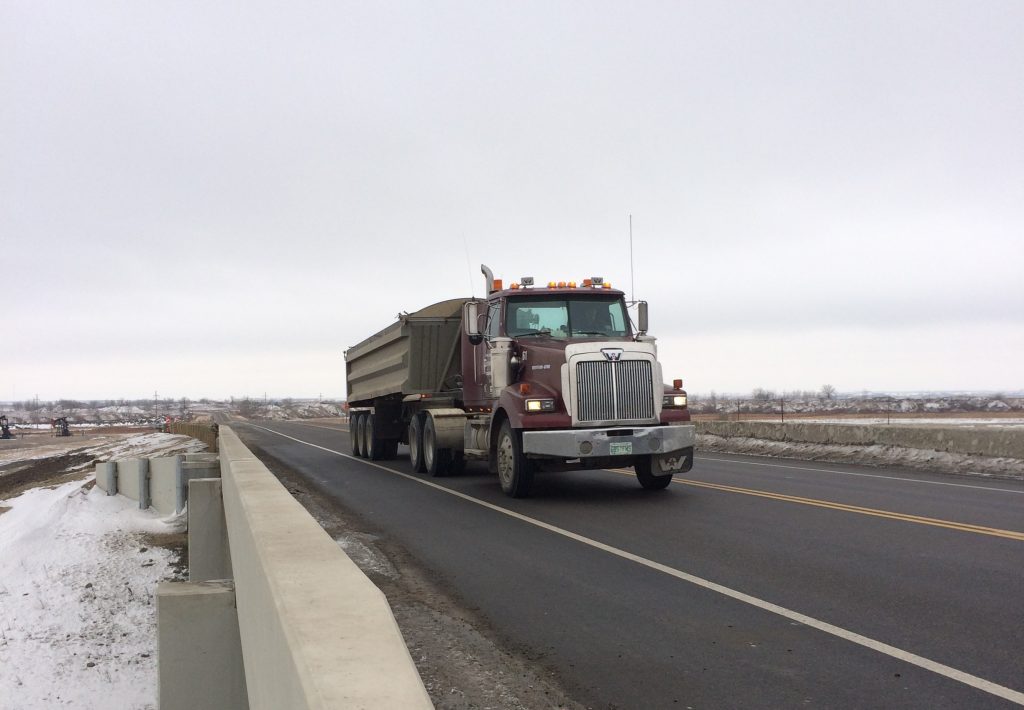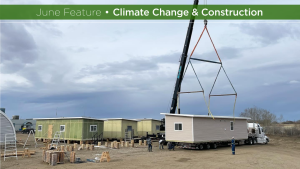The great plate debate is over. The Government of Saskatchewan announced Jan. 22 it is rescinding the ban on vehicles with Alberta license plates on all government worksites.
The dispute began in early December when Saskatchewan Premier Brad Wall’s government announced a ban on Alberta plates on any vehicles doing business on future Saskatchewan government road and building construction sites. The two provincial governments were set to meet on Jan. 31 to potentially resolve the matter.
Industry reaction to the move has been positive on both sides of the provincial border.
“The Alberta Construction Association continues to look forward to resolution by the governments of Saskatchewan and Alberta to this issue,” said Alberta Construction Association executive director Ken Gibson in a statement to the Journal of Commerce.
“We’re glad they rescinded the ban,” added Saskatchewan Heavy Construction Association (SHCA) president Shantel Lipp. “Now that the ban is gone, the Ministry of Highways and Infrastructure will be working with the Alberta government to find a solution.”
In Think Big, the SHCA’s newsletter, Lipp addressed the association membership and said the Saskatchewan ministry of highways had updated the organization on the changed status of the ban.
The ministry will be requesting the Alberta government implement an anonymous tip line, she said, allowing contractors to report incidents of unfair procurement or business practices to the Alberta government.
Lipp added the ministry of highways will work closely with the Saskatchewan Ministry of Finance to conduct fleet audits on all out-of-province contractor worksites prior to the commencement of work, in order to confirm out-of-province contractors are accurately reporting all vehicles and equipment coming across the border between Alberta and Saskatchewan.
“We realize there are times and reasons beyond the contractor’s control where changes to the equipment/fleet used to perform the work onsite may be required, so there will need to be a protocol put in place to allow for that to happen,” Lipp said.
But if an out-of-province contractor is caught cheating, she added, the ministry of highways has indicated it will be recorded in their contractor evaluation rating and they may be restricted from bidding on future work.
The Saskatchewan government will also differentiate between safety associations in the two provinces in terms of reciprocity of safety certifications and certificates of recognition.
“We’ve found that when Saskatchewan firms go into Alberta, they have to recertify, and there are less hoops on this side of the fence,” Lipp said.
Had the dispute not been settled, the matter would have gone to arbitration under the New West Partnership, a set of agreements between Alberta, Saskatchewan, British Columbia and Manitoba to facilitate inter-provincial trade. Saskatchewan could have faced up to a $5 million penalty if they were found to have broken rules guaranteeing access for those seeking work or contracts in another province.
Wall, whose announcement initiated the dispute, recently stepped down as premier. When Wall issued the ban, he stated it was in retaliation for a number of initiatives by the Alberta government, including a subsidy for Alberta brewers that Wall said hurts Saskatchewan businesses.
Lipp agreed the issue is larger than license plates.
“The majority of this is Saskatchewan taking a stand over beer tariffs, but that was the catalyst that sparked the issue,” she said.











Recent Comments